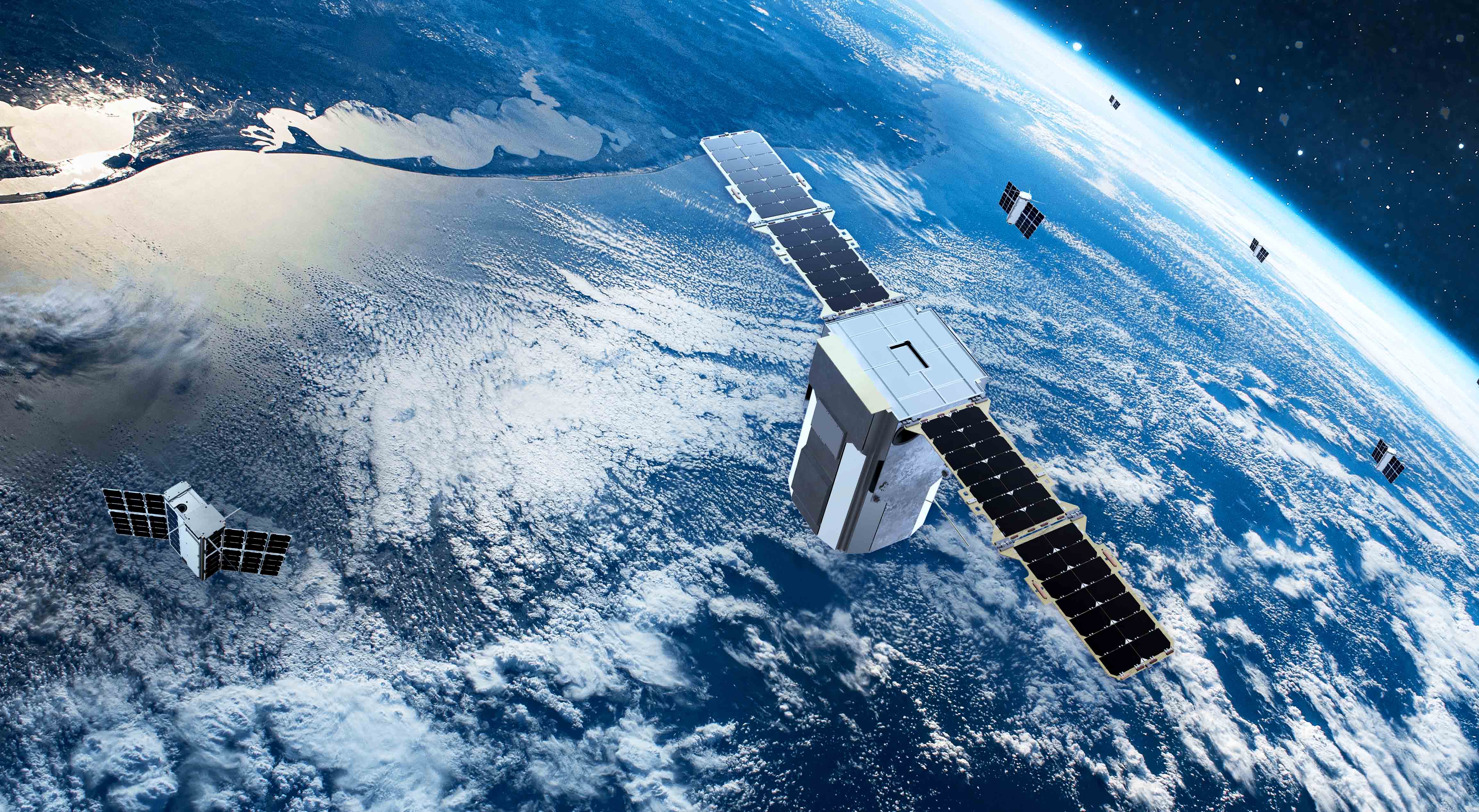Spire Global, a leading global provider of space-based data, analytics and space services, successfully launched three satellites on the SpaceX Transporter-7 mission from Vandenberg Space Force Base, the military-run spaceport about 140 miles (225 km) northwest of Los Angeles.
After several delays waiting for improved weather, SpaceX sent a Falcon 9 rocket into space on 14 April from California with a total of 51 small satellites, payloads and orbital transfer vehicles from customers around the world.
Spire launched a satellite developed for King Abdullah University of Science and Technology (KAUST), which aims to collect high-quality and high-resolution data across global terrestrial, coastal and ocean ecosystems and to help observe and characterize natural resources.
The 6U satellite hosts a hyperspectral camera with advanced on-board processing capabilities in combination with Spire’s Global Navigation Satellite System-Reflectometry (GNSS-R) sensor payload that will collect intelligence on soil moisture.
Data collected will allow KAUST researchers to compile and analyze high-resolution imagery that can be used for mapping terrestrial habitats, monitoring vegetation health and condition, exploring coastal ecosystems and coral reefs, and advancing agro-ecological research, as well as many other Earth and environmental science applications.
“Working with Spire allowed us to fast-track our satellite mission, which will provide unique insights to monitor, protect and preserve precious terrestrial and ocean systems in Saudi Arabia,” said Matthew McCabe, Director of the KAUST Climate and Livability Initiative.
Spire also launched ADLER-2, a second satellite developed in partnership between the Austrian Space Forum (OeWF), a national space research organization, and Findus Venture GmbH, an Austrian investor in new space technology.
ADLER-2 continues the mission of ADLER-1 (launched in January 2022) to provide insights into space debris in low Earth orbit (LEO) and expand novel atmospheric sensing capabilities to study clouds and aerosols in the atmosphere. ADLER-2 carries three payloads – two to help detect and track orbital debris, and a third perform air quality measurements around the globe.
“Space debris is a challenging issue we must address as quickly as possible. To develop solutions, we first need a better overview of the current situation in Earth orbit,” said Dr Gernot Grömer, Director of the Austrian Space Forum.
Spire's Space Services arm, with a $39 billion total addressable market, allows organisations to deploy and scale their own satellite constellation at maximum speed and reliably, all through a subscription model that eliminates the high upfront cost of building and maintaining infrastructure in space.
Commercial and government bodies can deploy and operate a constellation of satellites, a hosted payload, or a software application in space using Spire’s proven infrastructure.
“Our goal is to simplify space and make it accessible so that anyone is able to benefit from the insights and intelligence that can be garnered from the ultimate vantage point,” said Frank Frulio, General Manager of Spire Space Services.
“Both KAUST and ADLER-2 are prime examples of satellites from organisations that have leveraged our platform to build space-based applications and gather intelligence to promote sustainability on Earth and beyond.”











